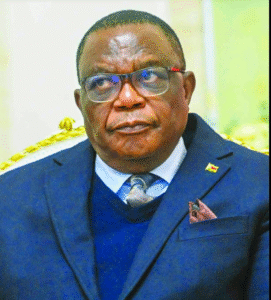ZIMBABWE CRACKS DOWN ON DISSENT TO SILENCE PROTESTS BEFORE SADC SUMMIT

The Zimbabwean government is using harsh and violent methods to stop people from meeting and speaking out ahead of the Southern African Development Community (SADC) summit in Harare next month. Authorities fear that protests might embarrass the government in front of regional leaders.
President Emmerson Mnangagwa’s administration is working hard to make the summit look successful. The government sees it as a chance to gain political support after the SADC election observer mission rejected the results of last year’s general elections, calling them flawed and unfair.
To prepare for the summit, the government is spending millions of dollars fixing roads, building villas, renovating hotels, and buying new buses. But while the government builds a shiny image for visitors, it is also crushing dissent at home.
This morning, the police violently stopped a Zimbabwe National Students Union (ZINASU) meeting at the Zesa National Training Centre in Harare. The meeting began at 10am but was quickly attacked by riot police. Most of the 60 student members present were beaten and some arrested. They were taken to Harare Central Police Station. The attack on the students is a clear violation of their constitutional rights to assemble, speak freely, and associate.
This is just the latest in a string of government crackdowns. The police have been arresting and harassing many people across the country. On June 16, former minister and MP Jameson Timba and 78 others were arrested for holding a simple braai in Avondale to commemorate the Soweto Uprising, known as Youth Day in South Africa. The peaceful gathering was broken up with violence, and many people were detained.
Opposition leader Job Sikhala is another victim of state repression. He was released on January 30 this year after spending 595 days in prison. His only “crime” was speaking out. He was accused of inciting violence, but the High Court dismissed the charges and threw out a false conviction under a law that no longer exists. Sikhala’s case shows how the law is being used to silence voices that speak against the government.
The rights to speak, meet, and protest are supposed to be protected by the Zimbabwean Constitution. But these rights are now only allowed for those who support the ruling party. Opposition members, students, and activists are being harassed, arrested, and even jailed just for exercising basic freedoms.
To make matters worse, the government recently passed a new law called the “Patriotic Act.” This law, an amendment to the Criminal Law (Codification and Reform) Act, brings in new punishments for those who criticize the government or speak to foreign powers. It is clearly designed to scare activists and prevent anyone from holding leaders accountable.
All of this is being done ahead of the SADC summit. The Mnangagwa government wants to look peaceful and united in front of regional leaders. But behind the scenes, Zimbabwe is being turned into a police state. People are afraid to speak, afraid to meet, and afraid to protest.
The international community is watching closely. Human rights groups and foreign governments are calling on Zimbabwe to stop the repression and respect the basic rights of its people. But so far, the government is showing no signs of slowing down.
The next few weeks will be critical. Will the government succeed in silencing all dissent before the summit? Or will the heavy-handed tactics lead to more anger and more protests? What is clear is that Zimbabwe is heading in the wrong direction. The crackdown on peaceful students, activists, and politicians is not a sign of strength — it is a sign of fear.
In a democracy, people must be allowed to speak. They must be allowed to gather. They must be allowed to protest. When a government fears its own people, it has already lost its moral authority. Zimbabweans are tired of fear. They want freedom. And the world must not look away.



